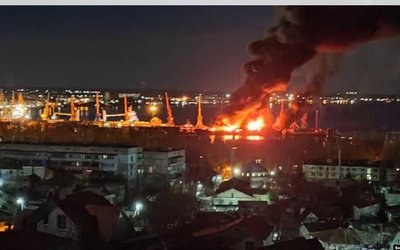
This day reminds us of a glorious moment of triumph on the 15th of August 1947 which not only brought to an end the dark era of repression in India, but also generated an inspiration for the peoples around the world for freedom and self-rule. It also demonstrated that peace and non-violence would be the best way to win freedom. Today as India is celebrating its historic Independence Day, we pay our tribute to the apostle of non-violence, the great Mahatma Gandhi.
In this context, let me recall the whole-hearted support extended by the people of Nepal for freedom movement of India and active participation of some of our prominent leaders like B.P. Koirala, Man Mohan Adhikari and Krishna Prasad Bhattarai of the time in it. Our leaders fought shoulder to shoulder with their Indian friends to liberate India from colonial rule.
Today, a firm commitment to the principles of peaceful coexistence, sovereign equality, mutual respect and understanding of each other’s aspirations and interests and respect of each other's sensitivities characterize our relations and should continue to do so. Age-old ties of history, culture, tradition and religion have nurtured our relations. The spheres of our cooperation have expanded into extensive partnerships in multiple areas of common interest at bilateral, regional and international levels. India's cooperation in infrastructure development, human resource development and projects in much needed sectors such as hydropower development has been instrumental in our efforts to achieve socio-economic transformation of the country. Besides recognizing the catalytic role of connectivity in stimulating economic growth and promoting people-to-people contacts, we focus our attention on advancing cooperation in water resources, strengthening trade and economic linkages, and promoting religious and cultural ties, to name a few.
This day also brings to our mind the steady journey of India since August 1947 towards the consolidation of national independence and institutionalization of a firm democratic foundation. India has shown to the world how democracy and development could be advanced simultaneously to promote overall progress and prosperity of the people.
The achievements India has made in the last 71 years of independence are truly inspiring. India stands firmly at the forefront, among other nations, with its distinct position in economic development, social progress, and scientific and technological advancement. A population of 1.3 billion consisting mostly of young, innovative and enterprising section has been a great dividend. India's economic growth rate has been high over the years. India's IT sector remains one of the best in the world. It is making great strides in space research. The rapid building of infrastructure, expansion of trade and increase in agriculture productivity have transformed the country's destiny.
Nonetheless, there are many challenges. And our challenges are similar in many respects. Both our countries are not fully free from poverty, illiteracy, disease, food insecurity and insufficient infrastructure. The vast natural resources that we have been gifted with are yet to be properly harnessed. Economic interlinkages are yet to be consolidated. We are yet to benefit fully from mutual complementarity in many other areas. All these necessitate further efforts for a meaningful partnership so as to ensure mutually beneficial results.
In this context, I fondly recall the exchange of visits by the Prime Ministers of Nepal and India in April and May this year which has generated a new dynamism in our bilateral relations. Our two sides are committed to taking bilateral relations to newer heights by strengthening ongoing cooperation in diverse spheres as well as to expanding partnership on the basis of the principles of equality, mutual trust, respect and mutual benefit. Besides economic, social and other areas of cooperation, we are expanding cooperation in the core areas of agriculture, railway linkages and inland waterways. While focusing on effective implementation of all the past agreements and understandings, both sides have intensified engagements for addressing the outstanding matters within the stipulated time frame of September 2018 with the objective of advancing cooperation in all areas.
Likewise, we are expecting the final report of the EPG-NIR to be submitted soon which, I believe, will suggest a clear guideline for the excellent relations between our countries as required for the 21st century.
In view of such focused attention from both sides on deeper and wider engagements in the areas of common interest, we look forward to a mutually beneficial outcome for our two countries and peoples.
Pradeep Kumar Gyawali is the Minister for Foreign Affairs of Nepal. Excerpts of the Statement delivered at , at a reception organized by Nepal Bharat Friendship Society to celebrate the 72nd Independence Day of India.
- Nepal And Russia Are On The Same Page To Strive For Preserving The Multilateralism
- Nov 26, 2019
- BIMSTEC Is A Bridge Between South Asia And South-East Asia: Foreign Minister Gyawali
- Aug 24, 2018
- Nepal Attaches High Importance To Its Relations With Pakistan
- Aug 14, 2018
- SDGs Represent The Most Comprehensive Development Agenda
- Aug 06, 2018
- Nepal's Neighborhood Provides Opportunities For Expanding Economic Linkages
- Aug 03, 2018
















